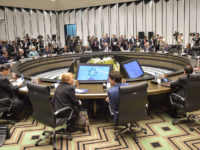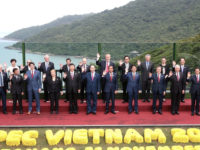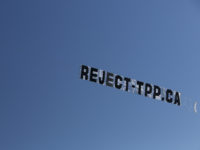The House of Commons Standing Committee on International Trade released its detailed study on the priorities of Canadian stakeholders in NAFTA earlier today. I appeared before the committee to discuss intellectual property and digital trade issues in September. The report includes notable recommendations on culture (retain the cultural exemption in NAFTA) and digital rights (ensure that digital trade provisions do not undermine Canadians’ privacy rights or security of their data, a nod to concerns over data localization and data transfer rules). It also features an important discussion on the intellectual property chapter, with clear support for retaining a made-in-Canada approach consistent with international standards.
Post Tagged with: "IP"
Bursting the IP Trade Bubble: Canada’s Position on IP Rules Takes Shape With Suspended TPP Provisions
In the months following the conclusion of the Trans Pacific Partnership, critics pointed to many specific problems in the text with respect to intellectual property, culture, privacy, and dispute resolution. TPP defenders consistently dismissed those concerns, yet last week’s successful Canadian demand to suspend many of the most problematic IP provisions (along with holding out for reforms to the cultural exemption) confirms that the government has recognized the validity of the criticisms. The government may yet cave to U.S. pressure in the NAFTA renegotiation, but it has established a clear position on culture and IP that better reflects the national interest.
No Deal is Better than a Bad Deal: Why Canada Won the TPP By Standing Up for Balanced IP, Culture, and the Auto Sector
The end-game in trade negotiations always generates more than its fair share of drama and last week’s effort to re-work the Trans Pacific Partnership without the United States was no different. Canada was squarely in the spotlight with Prime Minister Justin Trudeau a no-show at a ministerial meeting that was attributed to a scheduling error, but had the hallmarks of gamesmanship designed to demonstrate a willingness to walk away from the deal.
I posted over the weekend on some of the key IP provisions that have been suspended and published an op-ed in the Globe and Mail that argues that the result was a major win for Canada as the government leveraged its position as the second largest economy left in the TPP to extract significant concessions on intellectual property, culture, and the auto sector. Indeed, despite pressure to cave on key demands from the Japanese and Australian governments, Canada stood its ground and is helping to craft a trade deal that better reflects a balanced approach on challenging policy issues.
Rethinking IP in the TPP: Canadian Government Plays Key Role in Suspending Unbalanced Patent and Copyright Rules
Years of disappointment in trade negotiations have left many Canadian intellectual property watchers hoping for the best, but expecting the worst when it comes to the IP provisions in trade deals. In earlier talks, Canadian negotiators would often advocate balanced positions during the negotiations, but ultimately cave to (primarily) U.S. pressures during the final round of talks. Given that history, this week’s outcome of the TPP11 is reason for celebration as the second largest economy in the TPP finally acted like it. The Liberal government demonstrated genuine leadership in demanding significant changes to the flawed TPP intellectual property chapter and refusing to back down under intense pressure from some of the negotiating parties. The result isn’t perfect, but the newly named Comprehensive and Progressive Agreement for the Trans Pacific Partnership (CPTPP), which still requires considerable negotiation, features a significantly improved IP chapter that suspends some of the most problematic provisions.
Life After NAFTA: Why No Deal May Free Canada on Intellectual Property Policy
The Senate Open Caucus held a two-hour panel on NAFTA modernization last week with the intention of exploring the benefits and costs of re-working Canada’s most significant trade agreement. In light of signals that the United States be laying the groundwork to cancel the existing deal, however, the discussion quickly turned to the challenges and opportunities of life after NAFTA.
My role on the panel was to focus on NAFTA’s intellectual property and e-commerce implications. My Globe and Mail op-ed notes that to my surprise, the shift in focus to a post-NAFTA world was liberating, opening the door to considering Canadian policies that have previously been viewed as unattainable given intense U.S. pressure on intellectual property policy that favours “Americanization” of global rules. A world without NAFTA would unquestionably be a shock to the economic system, but it would also free the government to establish made-in-Canada IP policies that better reflect domestic values and pursue trade agreements that use international standards as the baseline rather than U.S. demands.
![By The White House from Washington, DC (Foreign Leader Visits) [Public domain], via Wikimedia Commons https://upload.wikimedia.org/wikipedia/commons/9/9f/Donald_Trump_Justin_Trudeau_2017-02-13_05.jpg](https://www.michaelgeist.ca/wp-content/uploads/2017/12/trumptrudeaufeb2017-200x150.jpg)










